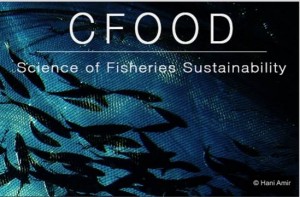HONOLULU (11 February 2016) Professor Ray Hilborn of the School of Aquatic and Fishery Sciences, University of Washington, and author of Overfishing: What Everyone Needs to Know (Oxford University Press), yesterday in Honolulu addressed the topic of “Sustainability of World Fisheries: Getting good science understood.” His presentation resonated with the audience of fishery scientists, managers and fishermen gathered in the conference room of the Western Pacific Regional Fishery Management Council.
Hilborn reviewed the litany of gloom and doom articles in the scientific  literature and media that have led the public to believe that most fisheries are unsustainably managed, stocks worldwide are declining and fishing destroys the environment. Frustration over these often cited erroneous articles led him to organize a network of scientists who have evaluated trends in global fish stocks under the CFOOD project (http://cfooduw.org/). Much of the negative reporting, e.g., all fish stocks will collapse by 2048, has already been extensively refuted, Hilborn said, yet it still lingers in the press. CFOOD identifies these reports and provides a forum for rapid-response by renowned fishery scientists, marine biologists, ecologists and natural resource managers. CFOOD also provides analysis and commentary on the latest emerging fisheries science and sets the record straight through a science-based approach to communicating the real story on fisheries sustainability.
literature and media that have led the public to believe that most fisheries are unsustainably managed, stocks worldwide are declining and fishing destroys the environment. Frustration over these often cited erroneous articles led him to organize a network of scientists who have evaluated trends in global fish stocks under the CFOOD project (http://cfooduw.org/). Much of the negative reporting, e.g., all fish stocks will collapse by 2048, has already been extensively refuted, Hilborn said, yet it still lingers in the press. CFOOD identifies these reports and provides a forum for rapid-response by renowned fishery scientists, marine biologists, ecologists and natural resource managers. CFOOD also provides analysis and commentary on the latest emerging fisheries science and sets the record straight through a science-based approach to communicating the real story on fisheries sustainability.
The network of scientists has surveyed the fisheries of 10 species in 28 countries, in five dimensions: research, management, enforcement, socioeconomics and stock status. The study revealed that countries with adequate elements of the five dimensions have sustainable fisheries management resulting in healthy to rebuilding fish stocks. Countries with the most sustainable fisheries are the United States, Iceland, Norway, Russia, New Zealand, Canada, South Africa and the United Kingdom. Those at the bottom of the list are Myamar, Thailand, Brazil, China, Bangladesh, Philippines and Indonesia.
The scientists have also investigated and refuted claims cited by the media and environmental groups regarding other fishery issues, such as trawling (https://trawlingpractices.wordpress.com), forage fish (https://foragefish.wordpress.com/) and marine protected areas (MPAs). He noted that the $200 million that has been spent on MPAs is not efficient use of funds if the goal is sustainability as MPAs are effective only in overfished situations. Nonetheless, Hilborn said he is optimistic. Foundations and non-government organizations have begun to fund his projects. They are also beginning to acknowledge that spending 90 percent of philanthropic funding on developed countries is ineffective when the sustainable fisheries problem is in the undeveloped countries.
Hilborn encourages scientists and the fishing industry to communicate to the public, not only through the traditional avenues of scientific papers and print media, but also through e-media and by presenting at a variety of conferences and meetings. Those interested on this topic can listen to an interview with Hilborn on the Go Fish! radio show by Mike Buck this Saturday at 4 p.m. Hawaii standard time on KHNR AM 690 (khnr.com).
The Western Pacific Regional Fishery Management Council was established by Congress in 1976. Under the Magnuson-Stevens Fishery Conservation and Management Act, the Council has authority over the fisheries in the Pacific Ocean seaward of the state / territory waters of Hawai`i, American Samoa, Guam, Commonwealth of the Northern Mariana Islands and the US Pacific Remote Island Areas.
Western Pacific Regional Fishery Management Council: Appointees by the Secretary of Commerce from nominees selected by American Samoa, CNMI, Guam and Hawai`i governors: Michael Duenas, Guam Fishermen’s Cooperative Association (Guam) (vice chair); Edwin Ebisui (Hawai`i) (chair); Michael Goto, United Fishing Agency Ltd. (Hawai`i); John Gourley, Micronesian Environmental Services (CNMI) (vice chair); Julie Leialoha, biologist (Hawai`i); Dr. Claire Tuia Poumele, Port Administration (American Samoa); McGrew Rice, commercial and charter fisherman (Hawai`i) (vice chair); and William Sword, recreational fisherman (American Samoa) (vice chair). Designated state officials: Suzanne Case, Hawai`i Department of Land and Natural Resources; Dr. Ruth Matagi-Tofiga, American Samoa Department of Marine and Wildlife Resources; Richard Seman, CNMI Department of Lands and Natural Resources; and Matt Sablan, Guam Department of Agriculture. Designated federal officials: Matthew Brown, USFWS Pacific Islands Refuges and Monuments Office; Michael Brakke, US Department of State; RADM Vincent B. Atkins, US Coast Guard 14th District; and Michael Tosatto, NMFS Pacific Islands Regional Office.
Click here for printable PDF
